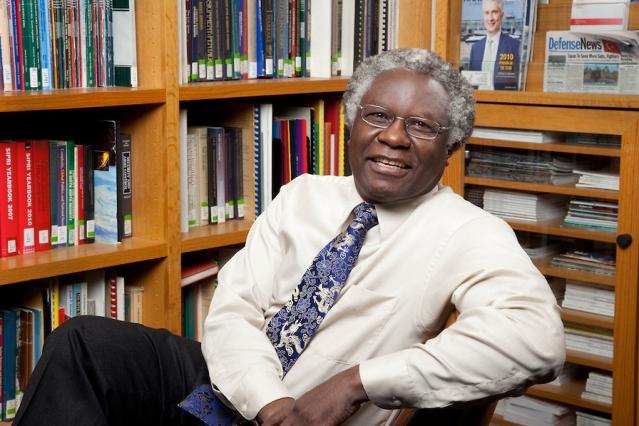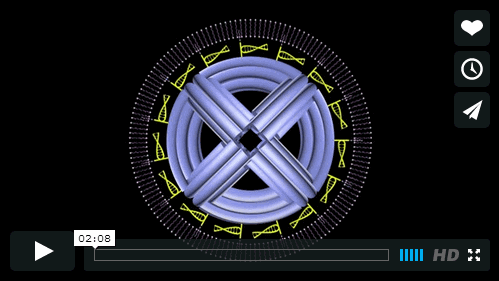
“What disturbs me on the other side is I don’t understand what the decision for you or against you when I write it is going to do to all kinds of other technologies”
Chaitanya (“Chet”) Kanojia is holding his breath over a US Supreme Court ruling on his disruptive technology that he says will revolutionize broadcasting and cheer the public by lowering cost of services. For entirely different reasons, so are major broadcasters (ABC, CBS, NBC, Fox etc): they see the technology gambit leading to copyright infringement, a massive loss of revenue, and the death of broadcasting as we know it.
On Tuesday, the country’s apex court did not give a whiff of which way it would go — itself torn between the two sides as it began hearing the landmark case that has transfixed most people plugged into broadcast, which is pretty much everyone.
At the heart of this profound case is whether Aereo, the nifty New York start-up founded by the Bhopal-born Indian-American, has the right to pick up broadcast signals off the air with its breakthrough technology — an antenna the size of a postage stamp — that it will giving subscribers for a fraction of the cost they pay for cable services. Aereo’s thumb-print sized device can capture TV signals from the airwaves and direct them to your laptop, tablet, or smartphone for as little as $ 8 compared to the up to $80 plus that people currently pay for cable services.
“Your technological model is based solely on circumventing legal prohibitions that you don’t want to comply with,” Chief Justice John Roberts observed sharply at the hearing, seemingly reflecting the argument of the powerful plaintiffs that mooching TV signals off the air amounts to theft of content and copyright violation. Aereo says its technology does nothing more than what subscribers have been able to do lawfully since the time the old-fashioned rabbit ear antenna — watch free broadcast if you are able to catch signals over public airways.
“There’s no content being provided. There’s (only) equipment that’s being provided,” Aereo’s lawyers maintained before the court in Tuesday in a case that attracted nationwide attention.
Times have changed, technology has become niftier, and new trends have caught on — and the Supreme Court appeared to struggle with evolving a new consensus of how to protect traditional and time-tested business models while not putting a crimp on innovation. “What disturbs me on the other side is I don’t understand what the decision for you or against you when I write it is going to do to all kinds of other technologies,” Justice Stephen Breyer agonized.
The Latest on: Disruptive technology
[google_news title=”” keyword=”Disruptive technology” num_posts=”10″ blurb_length=”0″ show_thumb=”left”]
via Google News
The Latest on: Disruptive technology
- Beauty titan L’Oreal banks on technologyon May 9, 2024 at 3:00 am
THE market for beauty may vary greatly from one country to another, and even within the same country. Yet, what every beauty consumer is seeking are solutions, and the biggest cosmetics company in the ...
- African Governments Urged to Embrace Disruptive Technologieson May 8, 2024 at 5:01 pm
By Duncan MboyahScientists have called upon African governments to embrace disruptive technologies including Artificial Intelligence (AI), quantum computing and astronomy.They were speaking during the ...
- New projects sought for €500m Disruptive Technologies Innovation Fundon May 8, 2024 at 9:44 am
Minister for Enterprise, Trade and Employment Peter Burke, Minister for Further and Higher Education, Research, Innovation and Science Patrick O’Donoghue, and Minister of State for Trade Promotion, ...
- Vect-Horus to Take Part in a Roundtable Discussion at Viva Technology Conferenceon May 6, 2024 at 8:00 pm
For this event, France’s National Center for Scientific Research (CNRS) has decided to highlight 10 start-ups developing disruptive technologies. In the field of Health, Vect-Horus has been selected ...
- BitFrontier Announces Strategic Pivot Towards Disruptive Mining Technologieson May 6, 2024 at 1:23 pm
BitFrontier Capital Holdings, Inc. (OTCMKTS: BFCH), a leading provider of crypto mining hardware and liquid immersion hosting centers, today announces a strategic pivot and commitment to success.Our ...
- Ault Disruptive Technologies Corpon April 22, 2024 at 4:59 pm
We sell different types of products and services to both investment professionals and individual investors. These products and services are usually sold through license agreements or subscriptions ...
- Ethics in the Age of Disruptive Technologies: An Operational Roadmapon April 22, 2024 at 10:17 am
"Ethics in the Age of Disruptive Technologies: An Operational Roadmap,” or, more briefly, the “ITEC Handbook,” offers organizations a strategic plan to enhance ethical management practices, empowering ...
via Bing News










